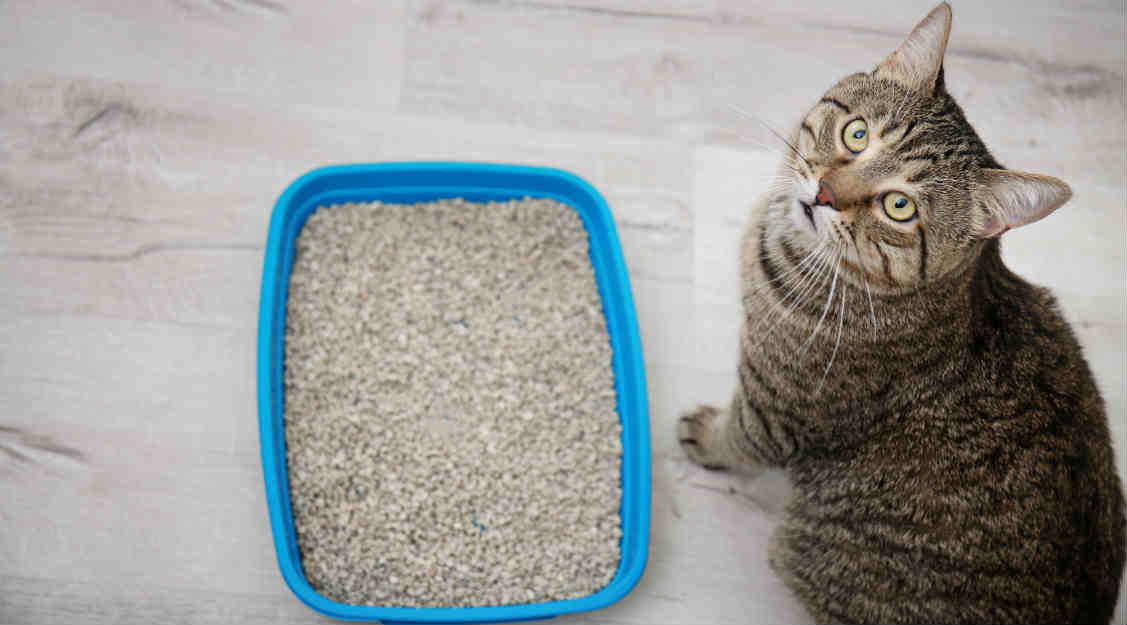9 Effective Cat Constipation Remedies
By: Dr. Clayton Greenway, B.Sc., DVM | Nov 6, 2019

Constipation in cats is a common problem. Some practitioners use a rule of thumb that says if a cat is still eating and feeling good, then you can wait on treating constipation and just monitor your cat for the time being. If there is vocalizing at the litter box, obvious straining, bloody discharge, lethargy, inappetence and vomiting, then you should see your veterinarian right away. If this isn’t occurring, here are 9 effective cat constipation remedies to consider.
1. Exercise
Exercise can help move things along the digestive tract. I should clarify that light exercise is good and that it shouldn’t be stressful or vigorous.
2. Weight Loss
We know that overweight cats are much more prone to constipation so keeping them at an ideal body weight will help prevent the condition.
3. Diet
It’s ideal to control constipation through diet so that you don’t have to start administering medications or supplements. There are many prescription diets that are formulated to aid in preventing bulky dry stool and improve gastrointestinal health by reducing the risk of constipation. Diets with ideal fiber levels and a low ash component will be beneficial for the condition.
4. Water Intake
Water absorption from digested food occurs in the colon, so as a stool sits in there longer, the more it will dry out and become firm, hard and difficult to pass. Increasing water intake in your pet by adding water to food, getting a water fountain, or flavoring your cat’s water bowl can encourage them to drink more. This will help prevent constipation.
5. Stool Softeners
There are products you can get from your veterinarian that will help soften the stool. Some of them are in a liquid form and some of them come as a powder. You may be able to find sample of these in your pet supply store but I would recommend you speak to your veterinarian.
6. Laxatives
There is a variety of laxatives you can use to treat constipation. In some cases you can use a human product that is over the counter. I always recommend speaking to your veterinarian before using any product on your pet and get his or her guidance.
7. Fiber Formulas
You can add fiber to your cat’s diet to reduce the risk of constipation and again, human variants can be used in some cases but I would strictly advise you to work with your veterinarian before administering any product and get their approval and direction.
8. Enemas
These should be performed by your veterinarian and they can be done in different ways. If the constipation is mild, a small amount of enema solution can be inserted into the colon through the anus. As the constipation worsens, large fluid mixtures can be used and even sedation may be necessary to alleviate a serious case. For the worst cases of constipation, a full general anaesthetic may need to be performed and the stool can be physically removed.
9. Pro-motility Medications
There are drugs that will increase the ability of the digestive tract to propel digested food down through the colon. Speak to your veterinarian about the different products and dosages.
I hope this is a good start for you and will help to relieve your cat’s constipation but remember, if your cat exhibits any of the symptoms mentioned above seek veterinary attention immediately.


Disclaimer: healthcareforpets.com and its team of veterinarians and clinicians do not endorse any products, services, or recommended advice. All advice presented by our veterinarians, clinicians, tools, resources, etc is not meant to replace a regular physical exam and consultation with your primary veterinarian or other clinicians. We always encourage you to seek medical advice from your regular veterinarian.

